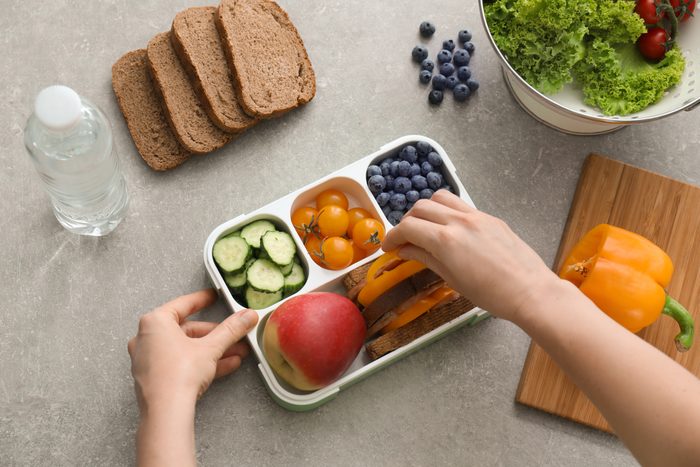
Food and recipe ideas for every meal
Deciding what to eat and when can be daunting. So I spoke with some dietitian colleagues and nutrition experts to share their recommendations for the best foods to eat at every time of day. Here’s how to maximize nutrition benefits with these tips on what to eat and when.
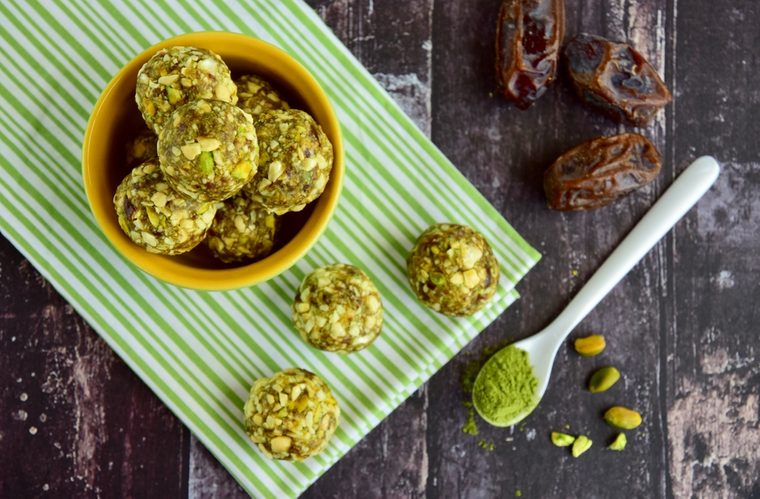
5:00–6:00 a.m. Snack
If you’re up early for a morning workout, and it’s at a low to moderate pace and less than an hour, you may just want to skip food and have a hearty breakfast after. However, if you plan to exercise intensely or for more than an hour, consider a pre-workout snack. These 5 Ingredient Matcha Energy Bites from Stephanie McKercher, Colorado-based registered dietitian and recipe developer at The Grateful Grazer, should do the trick. Matcha has caffeine that research published in Nutrients suggests can have a positive influence on workout performance.
7:00–9:00 a.m. Breakfast
Registered dietitian Lauren Harris-Pincus, the author of The Protein-Packed Breakfast Club, points to research indicating that eating a minimum of 20 grams of protein per meal will help prevent loss of muscle as we get older. It’s easier to accomplish at lunch and dinner, but most people don’t get enough protein at breakfast. Harris-Pincus recommends including foods such as cottage cheese, Greek yogurt, or eggs, as well as plant-based proteins like beans or tofu. Research shows that protein will help keep you feeling full.
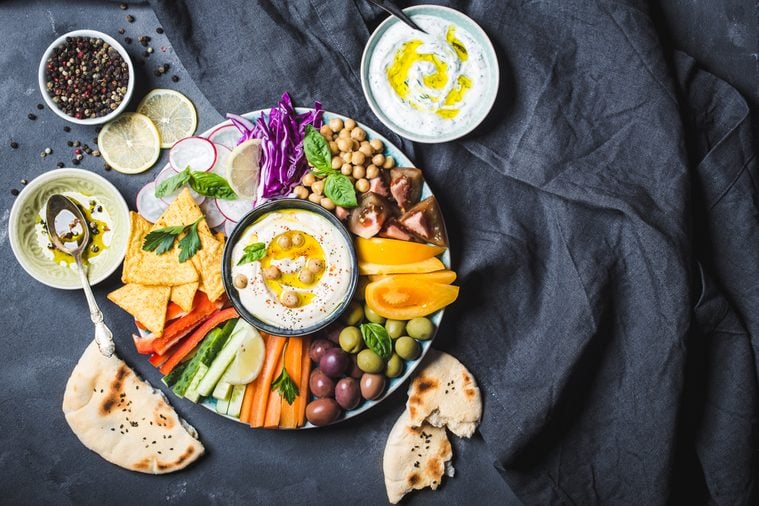
10:00–11:00 a.m. Snack
Registered dietitian Sara Haas, author of Taco! Taco! Taco! and the Fertility Foods Cookbook, says, “Get your day off to a great start with fruits and vegetables. It sets you up for getting a variety of nutrients.” A snack is a great opportunity to work toward the five to nine servings of fruits and vegetables you need each day for better health. Carrots with some low-fat dip or an apple with peanut butter are great options.
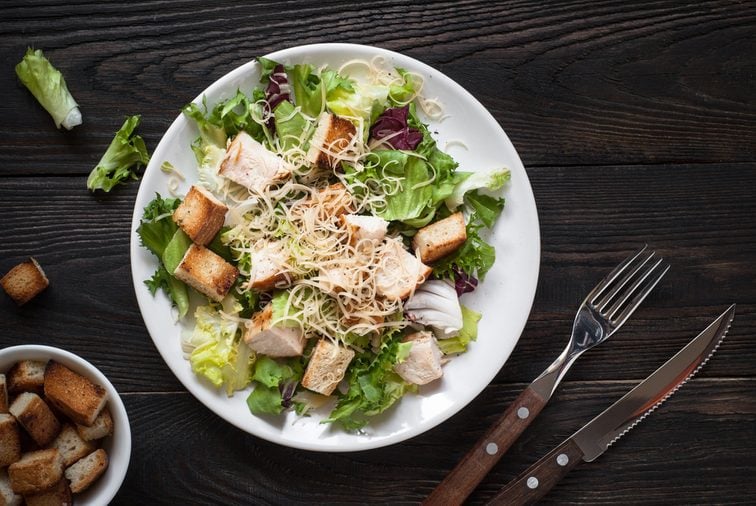
12:00–2:00 p.m. Lunch
Lunch is the time to refuel for the afternoon, so eating a balanced meal with protein, whole grains, and a large serving of vegetables is the way to go, recommends registered dietitian Sandra Arévalo, a spokesperson for the Academy of Nutrition and Dietetics. An easy go-to meal for getting all of that at once is a salad. Because fruits and veggies contain unique mixes of healthy compounds, plan to mix up your salad ingredients from day to day for a variety of nutrients. If you’re looking for other options, check out these 20 healthy lunch ideas that aren’t salad.
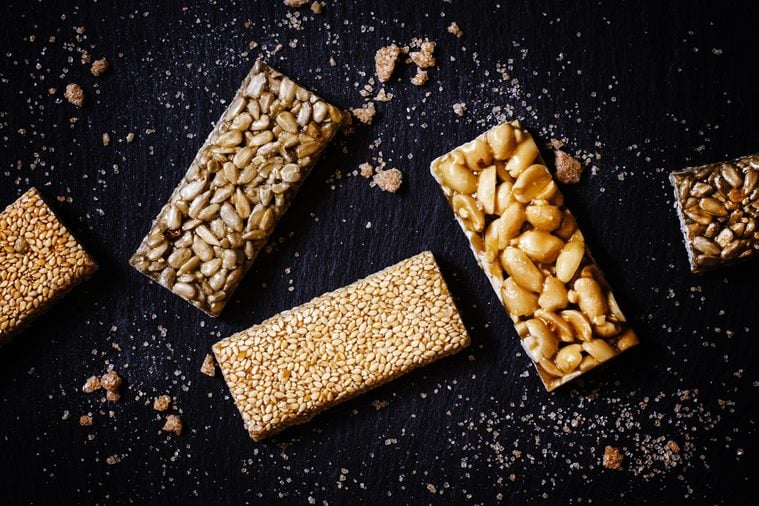
3:00–4:00 p.m. Snack
McKercher says, “For a mid-afternoon pick-me-up, snack on these No Bake Sesame Date Bars. Made with nuts, seeds, and protein-rich chickpea powder, they help me feel energized until dinner.” They’re also a cinch to prepare; no oven required. Dates may also help lower cholesterol levels because of their high fiber content, according to research published in the Health Science Journal and the Journal of Agricultural and Food Chemistry.
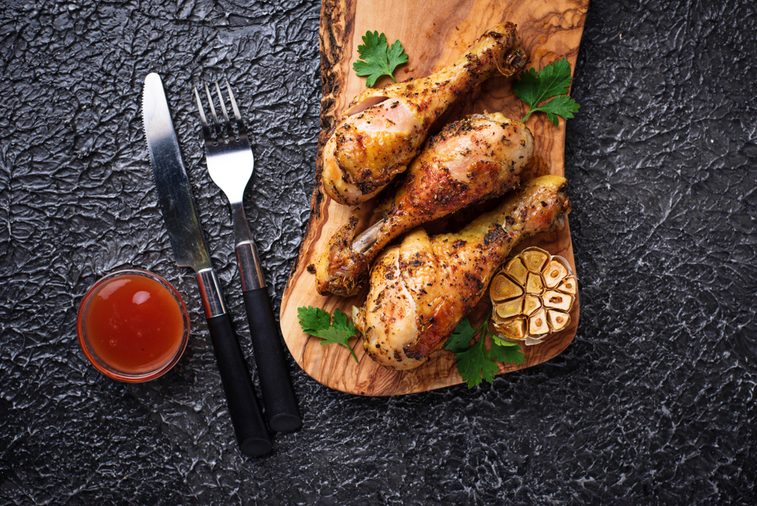
6:00–7:00 p.m. Dinner
“We don’t need the same amount of energy in the evening as when we are going to work, school, or working out,” explains Arévalo. For that reason, she recommends plenty of vegetables and a lean serving of protein, like beans, grilled chicken, or fish to keep calories low for your evening meal. If you missed lunch or an afternoon snack, don’t let hunger lead you to overeat at dinner.
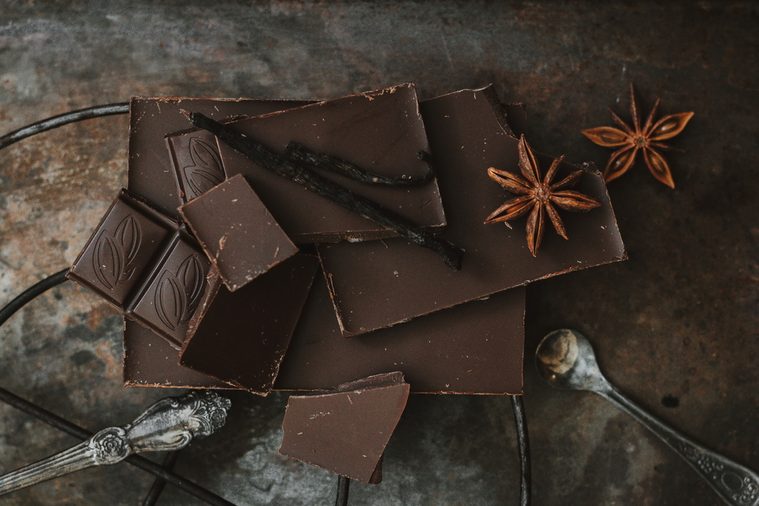
7:00–8:00 p.m. Dessert
For people who just have to end their meal on a sweet note, fruit can answer the call. Plus, it tops the healthy list, thanks to all the vitamins, minerals, and fiber it provides. Top with a spritz of light whipped cream for a more decadent experience. If you’ve already had several servings of fruit during the day, opt for a small amount of dark chocolate—unless you’re sensitive to caffeine, which is naturally found in cocoa beans—or low-fat vanilla yogurt for a boost of calcium. Here’s what you need to know about the health benefits of chocolate.
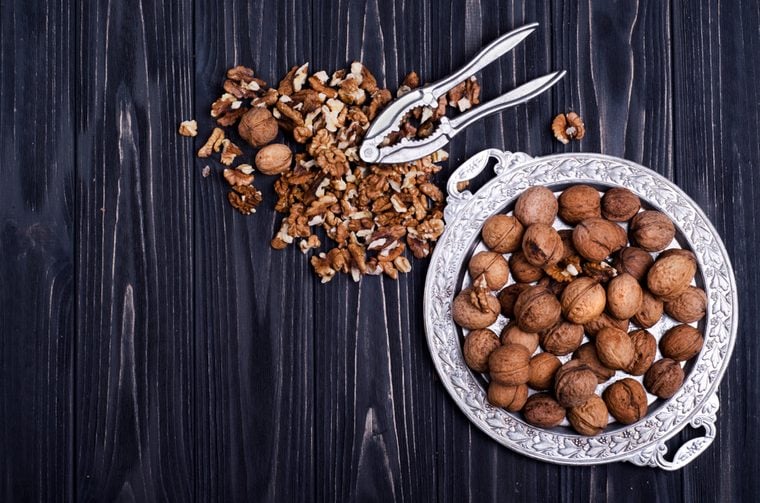
9:00–11: 00 p.m. Snack
Many adults drink alcohol in the evening to help them relax and go to sleep—which is a terrible idea, according to registered dietitian Lindsey Pine, owner of TastyBalance Nutrition. Pine says it can interfere with the quality of your sleep and leave you feeling exhausted the next day. Instead, encourage and improve sleep by enjoying snacks with natural sources of the sleep-inducing hormone melatonin, a 2017 study in Nutrients suggests. Start with grapes, walnuts, or pistachios. You can also try one of these snacks nutritionists always keep on hand.
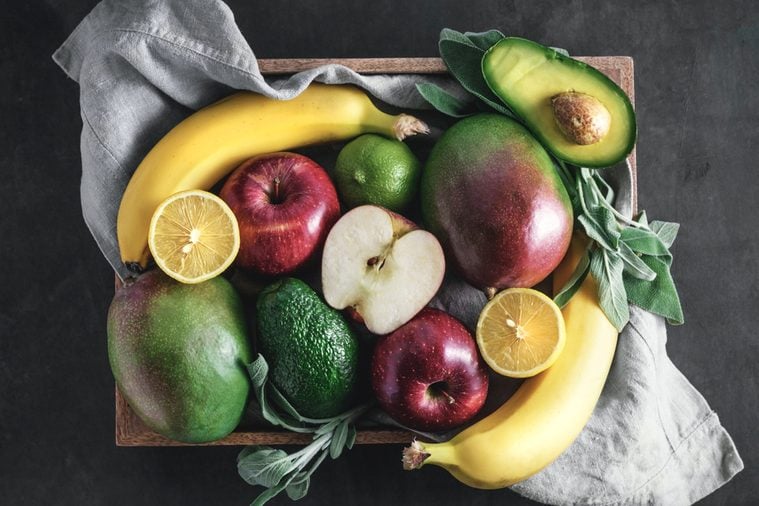
Shift work
If your schedule swaps late night, early morning, and regular shifts, then your meals will be all over the place. Just remember that the same rules still apply: Have a heavier meal before your shift begins for energy, and eat progressively lighter as your worktime progresses to help prepare your body and mind for sleep. A mix of whole grains, vegetables, lean proteins, and healthy fats such as nuts and avocado are great choices at any time. Don’t miss these 15 quick healthy meals doctors and nutritionists make every day.